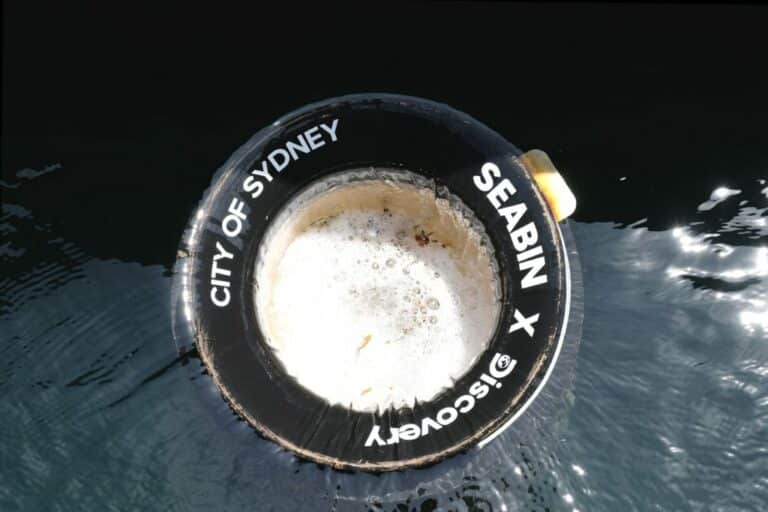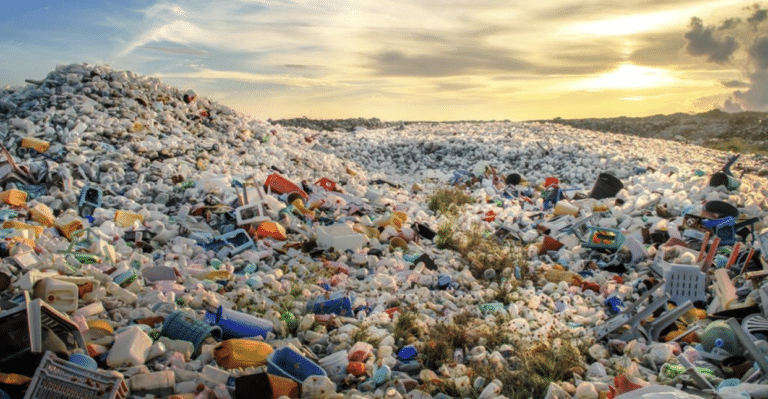While as humans we can be visionary, we often lack imagination, and ultimately suffer for our short-sightedness.
Plastic waste has emerged as one of the most pressing environmental challenges of our time – a stark illustration of our tendency to prioritise short-term convenience over long-term sustainability.
Despite its ubiquity and usefulness, the widespread use and disposal of plastic is creating profound ecological consequences. Currently, only 16% of plastic is recycled. The majority finds its way to landfill, incineration sites, or ends up in our rivers and oceans.
Who ever thought single use water bottles were a good idea? Many of us still do. Bottled water was worth USD $333 Billion in 2023, and is projected to grow to USD $538 Billion by 2032.
Plastic waste epitomises our inability to foresee the impact of short-term solutions until, well, it can be too late. This highlights the need for a fundamental shift in what we accept and normalise for convenience and affordability.
The retail industry has come a long way towards reducing the use and consumption of plastic packaging, and it’s exciting how quickly this is becoming expected by consumers, to receive their orders wrapped in biodegradable or even compostable plastic.
Suppliers of this new packaging have been able to reduce their costs, such that this is fast becoming a new packaging normal. Yet our current patterns of consumption still produce enormous amounts of packaging, energy use and emissions – which are all key factors responsible for climate change.
Where are we now?
- Up to two million tonnes of plastic enters our oceans yearly, profoundly affecting wildlife and ecosystems
- Around 0.5% of all plastic waste ends up in the ocean. Most of it stays close to the shoreline
- Plastic production will increase by 40% in the next 10 years. If we don’t change course, by 2050 oceans will be full of more plastic than fish. The United Nations warns that marine life will be irreparably destroyed
At i=Change, one of our core impact pillars is the mitigation of climate change, and helping fund NGOs delivering critical innovations that address environmental issues, like plastic waste.
One such partner, The Seabin Foundation, has developed a simple technology to remove plastics from bays and waterways. While these ‘seabins’ are highly effective, the problem is vast, systemic and, literally, a drop in the ocean.

The reality is plastic is convenient, lightweight, durable and ingrained in virtually every aspect of modern society. However, this convenience comes at a huge cost.
Plastic’s widespread adoption has led to alarming accumulation in landfills, waterways, and oceans. Despite our efforts to recycle, millions of tonnes of plastic is discarded each year, where it can persist for hundreds of years, leaching harmful chemicals into the environment. For marine animals, ingesting plastic and microplastics can also infiltrate the food chain. For the environment and human health, the consequences of plastic pollution are multifaceted and menacing.
When plastic first gained popularity in the mid-20th century, its environmental consequences were not understood or appreciated. As with most new inventions, the focus was primarily on its benefits, with little or no consideration of its implications for future generations. So now we find ourselves grappling with enormous unintended consequences, having to confront a problem that’s grown exponentially over time.
Compounding the issue is the sheer inadequacy of waste systems to handle the volume of discarded plastic globally. Despite efforts to recycle, much of the world’s plastic still ends up in landfills or incinerators, where it often releases harmful pollution into the air and soil.
Exporting plastic waste to developing countries further exacerbates the environmental problem, while also being an injustice that echoes our colonial past, and the inequities inherent in our current system of extraction, consumption and disposal.
This Earth Day, while the state of the planet can seem overwhelming, what if we instead consider what we can control; the impact of our individual everyday choices? If all of us make incremental changes, the compounding effect will be enormous.

Yet addressing this waste crisis also demands systemic change in how we produce, consume, and dispose of goods. This includes holding producers accountable for the life cycle of products. Should there be a plastic life cycle tax?
Central to this is the concept of a circular economy, which seeks to minimise waste and maximise resource efficiency through sustainable design, production and consumption. A circular economy offers a viable path forward by emphasising the importance of designing out plastic waste from the outset, rather than trying to manage the problem after it’s in circulation.
We can all play a crucial role in driving demand for sustainable alternatives, and holding businesses accountable for their environmental impact. Yet the greatest impact we can have is to simply consume less, while also demanding that what we do buy is – at least – not unnecessarily wrapped in plastic.
This crisis is a sobering reminder of what can happen when we prioritise short-term convenience. As we now try to grapple with the environmental, economic and social implications of plastic pollution, by reimagining our relationship with plastic, we can chart a course toward a healthier, more resilient planet for generations to come.
By next Earth Day, could we be reporting on a profound shift forward? We know that when viable solutions emerge, uptake can be rapid. They just need to be simple, convenient and, well, as cheap as plastic. Perhaps though this is the problem; that we cannot solve a problem with the same thinking that created it.
What thinking do we now need? Well, that’s up to each of us; to ‘be the change’ we need to see.
Written by Jeremy Meltzer, Founder & CEO of i=Change




















